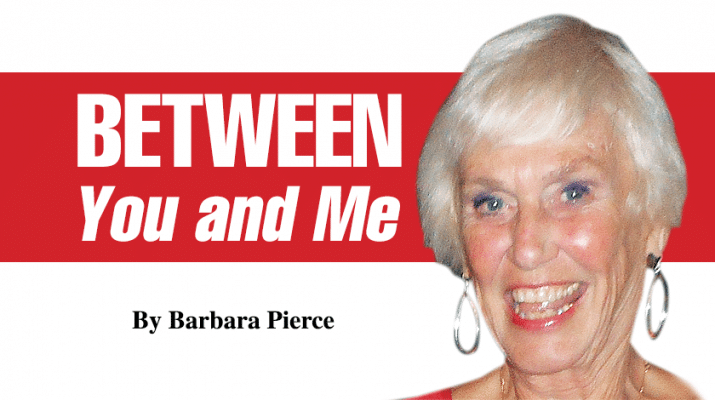It can help you live longer and be healthier
By Barbara Pierce
Imagine that you and I are meeting for lunch. We haven’t seen each other for months and are happy to get together.
As we sit across from each other, talking and laughing, massive sections of our brains have become active, lit up, like someone throwing the switch for a night game at Donovan Stadium.
Our brains are fired up, reading hundreds of subtle signals from each other, body language, tone of voice, flickers of facial expression, glances that speak volumes.
Our brains subconsciously absorb and interpret every nuance of body language and facial expressions.
The part of our brain that’s active is the limbic system, one of the main parts of the brain that controls basic emotions. We’ve got three brain layers. The reptilian brain, or physical brain, controls our instincts for self-preservation. The neocortical, or thinking brain, is responsible for higher-order brain functions like thought, language and reasoning. The limbic brain, or emotional brain, runs our emotions, and in many ways it’s the most important brain component we have.
The limbic system underpins our mood. A positive mood, positive emotions are what lie behind a good life, what helps us flourish. Research has shown that the difference between people who are flourishing and those who aren’t can be found in the positive emotions they carve out from everyday activities.
The many benefits of positive emotions are well documented. In addition to improving physical health, they foster trust and compassion. They buffer us against depression and help us recover from stress. They can even undo the undesirable effects of negative emotions. They foster better social connectedness.
The good news is that you can cultivate positive emotions.
Some suggestions:
Connect
“When we think of positive health behaviors, being physically active and eating vegetables leap to mind. Positive social connections are every bit as important to your long-term physical health,” said Psychology Professor Dr. Barbara Fredrickson online. “I mean old-fashioned, real-time connections, face-to-face and voice-to-voice. We can increase these not only by prioritizing enjoyable activities with our families and friends, but also by simply smiling and making eye contact with the clerk who helps you at the store or the person sitting near you on your commute. These simple moments of connection are surprisingly powerful.”
Strong relationships are crucial to our well-being and good health. Dozens of studies have shown that people who have satisfying relationships with family, friends, and their community are happier, have fewer health problems, and live longer.
“Divorce is astonishingly common in for older adults. Aging is hard to do alone. It’s a lot easier if you have a partner. And if your partner has you,” suggest Chris Rowley and Dr. Henry Lodge in their book “Younger Next Year: A Guide to Living like 50 until you’re 80.”
“If you’ve got a tolerable relationship, pour your love into it. There are going to be some hard thumps ahead. Maybe a touch of death at the end. And that may be easier if you’re with someone who knows you pretty well. Do what you must, but hang on to your family.”
“If you don’t have a partner, friends will do,” they continued. “In fact, just one close friend does miracles. We’re hardwired to function in groups and we can’t get away from it.”
Find joy
Do the things that you love doing. Whether it’s preparing a meal, painting a picture, writing a poem, cleaning your home, going for a walk or even staring at the clouds. Make a list of things you really enjoy doing. Pull it out and try to do one of the activities every day.
Double down and share with someone who also would enjoy it. You’ll get the benefit of that a social connection brings as well as the benefit of doing something enjoyable.
Have a purpose
“It can be argued that we’re all sled dogs and are happier when we pull a little. Even a crappy job is a limbic stew. Jump in,” said Rowley and Lodge. “Whether part-time, full-time or occasional, work gives great satisfaction, even to the very old.”
“Or, do regular volunteer work. It’s one of the most satisfying things a lot of people do and it does them a world of good,” they said.
Find a purpose. People who have a purpose in their life, a reason to get up in the morning, live longer, better lives.
Think gratitude
Just thinking of one or two things every day for which you are grateful can boost your mood. When you recognize all that you have, whether it’s good health, a loving partner or food to eat, you increase your satisfaction in life.
Waking up to birds chirping, a dog’s nose in our face, the smell of coffee, are wonderful experiences. The more often we choose to appreciate these small pleasures, the happier we will be.
Barbara Pierce is a retired licensed clinical social worker with many years of experience helping people. If you would like to purchase a copy of her book, “When You Come to the Edge: Aging” or if you have questions for her, contact her at barbarapierce06@yahoo.com.

